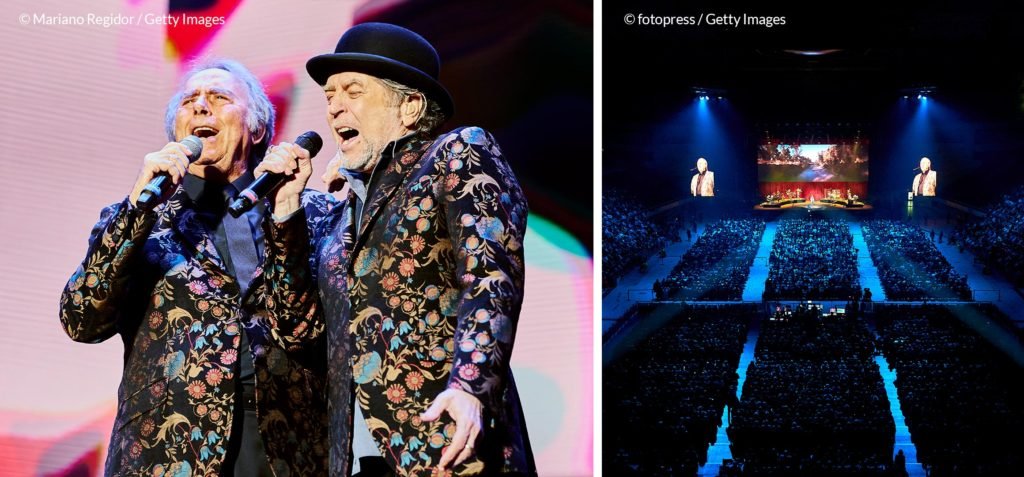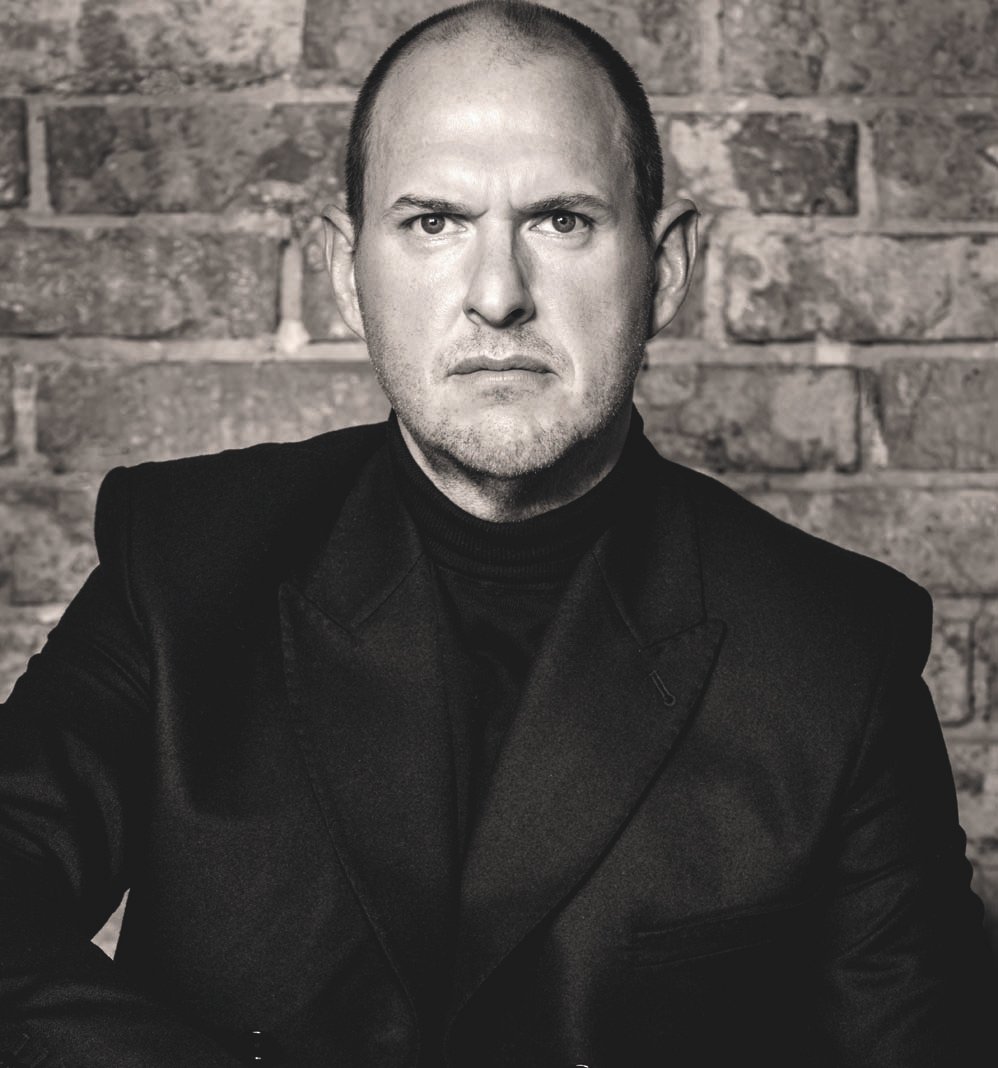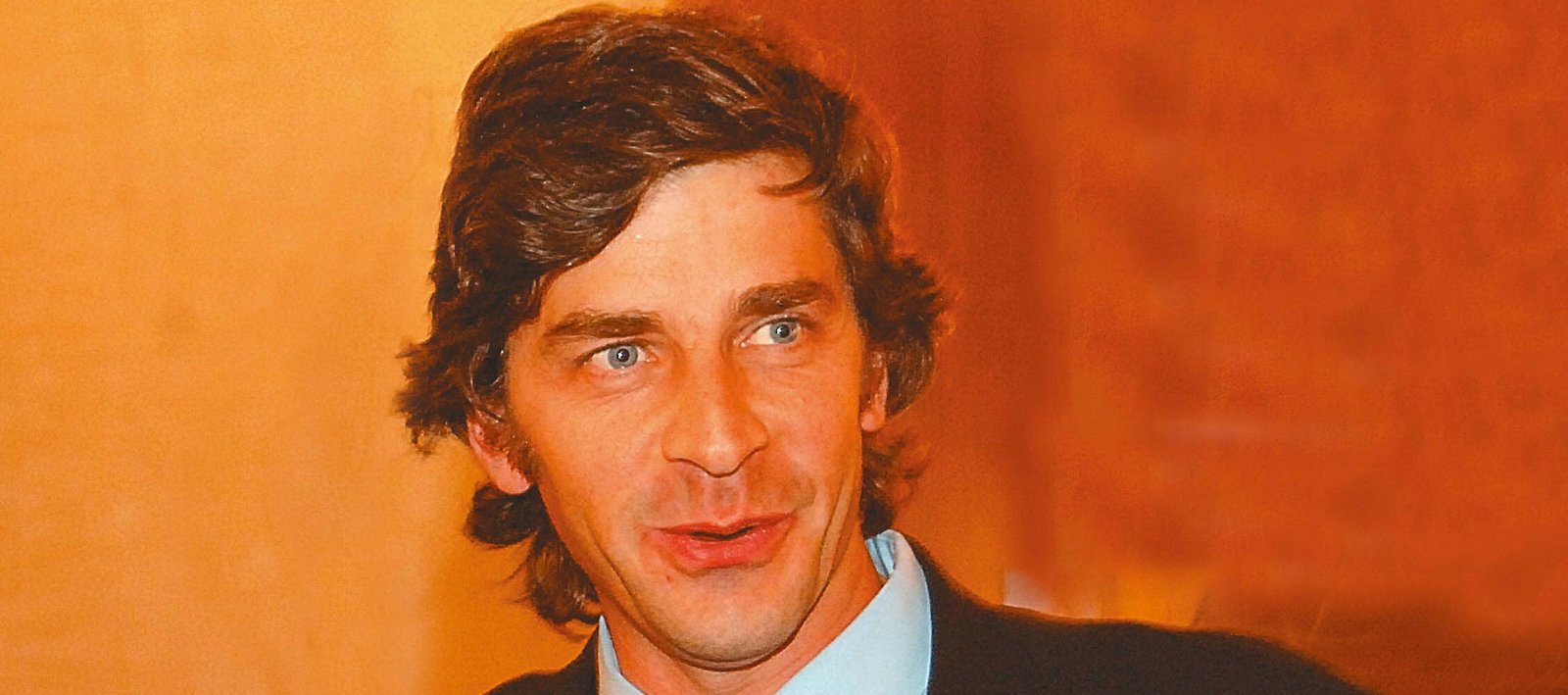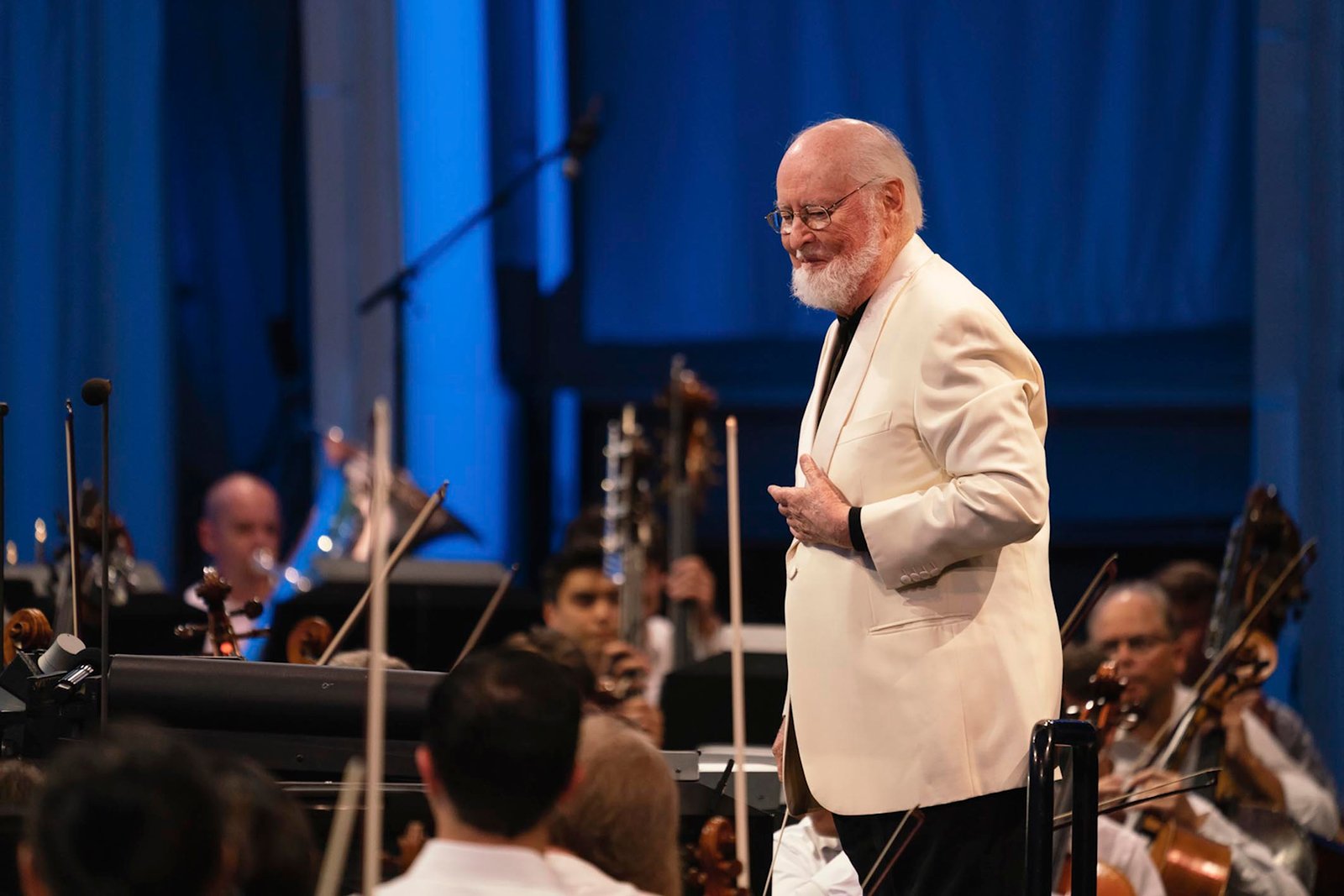
Serrat’s farewell
After a marathon year, with more than 80 concerts across America and Europe, Joan Manuel Serrat winds up his “Vice of Singing” tour and bids farewell to the stage.
By Paula Ríos
Photos: Getty Images
There’s a line. And it’s not a recital. There are cameras, microphones, journalists… We are welcomed into the lobby of the theater with a glass of water. The entrance to the hall is crowded as people rush to find a place. An enormous banner hanging centerstage announces: “The Vice of Singing — Serrat 1965-2022.” After a moment, the renowned Spanish singer/songwriter Joan Manuel Serrat steps out to speak with us following his recent an- nouncement that this is to be his final tour.
He will retire from live performance, but not from composing or continuing to live “so pretty that it is a pleasure to see” (as one of his songs puts it). His presence floods the space with a sudden calm and all the cameras flash together at once. Everyone wants his picture. Joan knows the rules by heart, and puts on his best smile while allowing his picture to be taken. The corners of his mouth lift and years of professionalism, brilliance, and experience peek out… along with music as yet unwritten.

“Generally speaking, my life is very satisfying, both personally and artistically”, ” says the singer/ songwriter at the start of a warm-hearted conversation, while sipping from his glass. “Places become valuable when they are shared with dreams and people”, he adds, alluding to the countries he is currently visiting and those he has visited on his tours. These initial statements could well be lyrics to a new song. Serrat is more than just a musician, he is an entire philosophy of life.
But his most heartfelt testimony comes when speaking of his retirement: “When I witnessed Sabina’s unlucky fall on stage during our third ‘Los Pájaros’ tour, that same day, I began to feel the need to take a look at where I was. We had to call off the tour and, immediately after that, Covid hit, which locked us all down in our homes and forced us into a different kind of social functioning… it made me a recluse. The theaters and the performance spaces closed, and this took me away from my daily contact with the profession. I noticed that time was growing shorter and that perhaps it was a good time to plan a final tour”.
He then adds: “I have never counted concerts; neither those I’ve done, nor those I have yet to do. This is a completely defensive attitude, because this tour is riddled with traps, emotions, sentiment. I therefore treat each one of my shows as the last. Emotions arise that I neither renounce nor foster; I couldn’t without falling apart… I have decided to retire from performing, but not from music”. The pause grows long, “Nano’s” hands perspire, and his teary eyes reflect the unavoidable pain of speaking on the subject.
The tension is soon broken and a smile lights up his face when someone asks him to whom he would award the Nobel Prize in Literature: “Without a doubt, to Chico Buarque, because he is a colleague who has written moving songs. Then to Silvio [Rodríguez], because his lyrics are the most intel- ligent and he sets a great example. And then to my friend Joaquín Sabina, because he’d love it”,he says before roaring with laughter.
The lights and the words dim; Joan Manuel retires after sharing a tiny portion of his long, rich life, stretching from his beginnings when, for example, he was part of the Nova Cançó, the generation of singer/songwriters that defended the use of the Catalan language during Franco’s dictatorship, to the time one of his songs won the Eurovision contest and his tributes to poets such as Antonio Machado, Rafael Alberti, Miguel Hernández, Joan Salvat-Papasseit, and Mario Benedetti in his songs. And then it’s “hasta luego” to the master; a “see you later” to “those times…that rather than good or bad, were mine and have been the only times.”




Leave a Reply